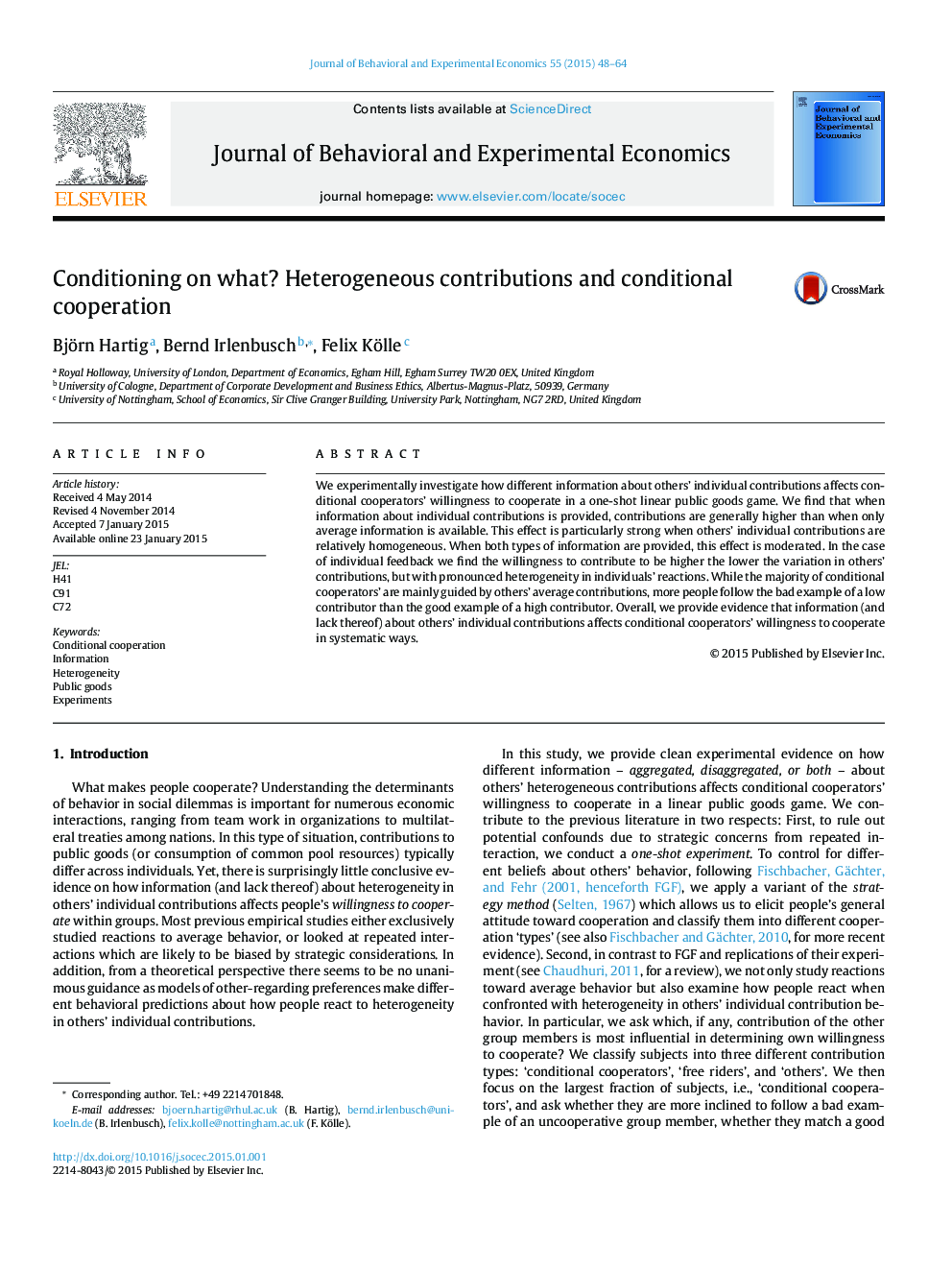| Article ID | Journal | Published Year | Pages | File Type |
|---|---|---|---|---|
| 881863 | Journal of Behavioral and Experimental Economics | 2015 | 17 Pages |
•We test how different information regimes affect the willingness to cooperate of `conditional cooperators’.•Cooperation is higher when individual rather than average information is provided.•This effect is particularly strong when others’ contributions are relatively uniform.•On average, contributions are lower the higher the variation in others' contributions.•Conditional cooperators are more likely to follow a low rather than high contributor.
We experimentally investigate how different information about others’ individual contributions affects conditional cooperators’ willingness to cooperate in a one-shot linear public goods game. We find that when information about individual contributions is provided, contributions are generally higher than when only average information is available. This effect is particularly strong when others’ individual contributions are relatively homogeneous. When both types of information are provided, this effect is moderated. In the case of individual feedback we find the willingness to contribute to be higher the lower the variation in others' contributions, but with pronounced heterogeneity in individuals’ reactions. While the majority of conditional cooperators’ are mainly guided by others’ average contributions, more people follow the bad example of a low contributor than the good example of a high contributor. Overall, we provide evidence that information (and lack thereof) about others’ individual contributions affects conditional cooperators’ willingness to cooperate in systematic ways.
